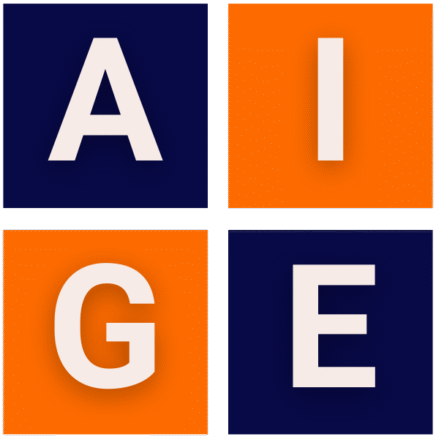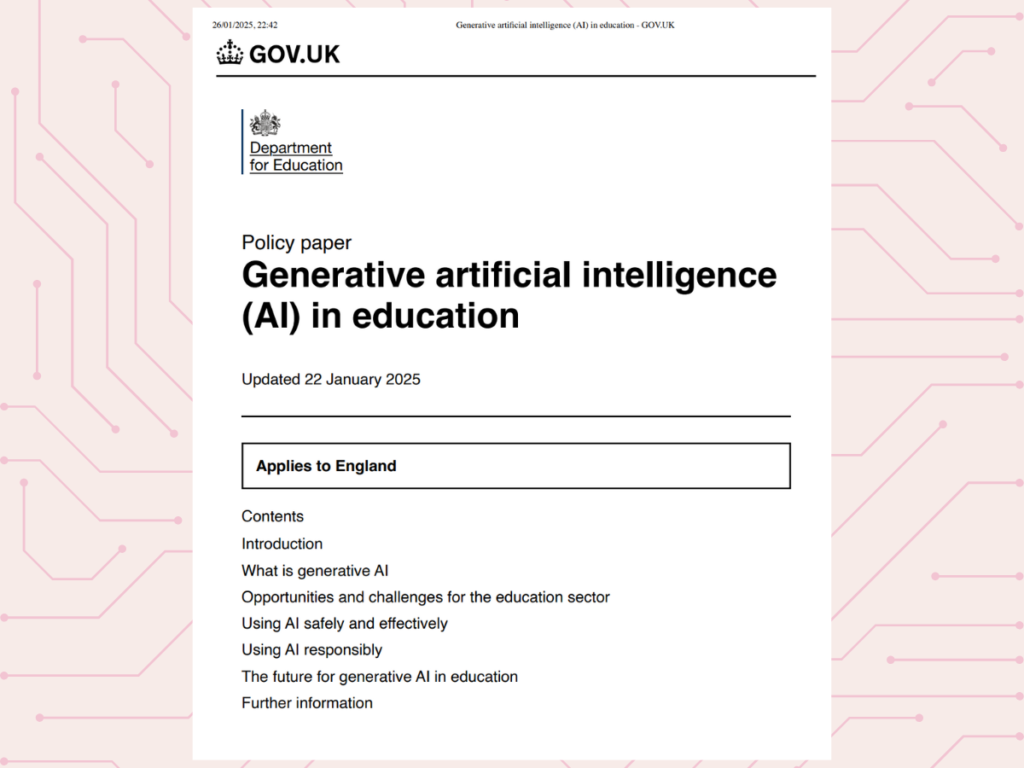The Generative Artificial Intelligence (AI) in Education policy paper by the UK Department for Education provides guidelines and insights into the safe, effective, and responsible use of generative AI tools in education, specifically targeting primary and secondary schools (K–12).
Purpose
- To integrate AI into education to enhance teaching and learning while addressing associated risks and challenges.
- To ensure equitable access and the safety of learners, teachers, and staff in adopting AI technologies.
Opportunities
Generative AI has transformative potential in education, offering benefits such as:
- Automating administrative tasks, freeing teachers to focus on teaching.
- Providing tailored feedback and personalised learning experiences.
- Supporting lesson and curriculum planning.
- Developing innovative teaching resources.
Challenges
The use of generative AI also poses significant risks:
- Inaccuracy, bias, or the production of inappropriate or unsafe content.
- Intellectual property concerns and the potential misuse of copyrighted materials.
- Privacy and data security issues, especially concerning student data.
- Dependence on AI could impact the critical teacher-learner relationship.
Key Guidelines for Use
- Safety and Compliance:
- Ensure all use cases comply with data protection laws, intellectual property rights, and safeguarding policies.
- Risk assessments are mandatory before implementing AI in classrooms.
- AI should not replace the role of educators but serve as a supportive tool.
- Pupil and Teacher Engagement:
- Pupil-facing AI must be closely monitored, with proper safeguards in place.
- Teachers and school leaders must critically evaluate AI-generated content for accuracy and relevance.
- Responsible Implementation:
- Follow legal obligations related to data privacy and copyright.
- Develop clear policies for integrating AI into homework, assessments, and classroom activities.
- Ensure transparency and stakeholder involvement, including parents.
Investments and Future Plans
- Development of AI tools like Aila, an AI-powered lesson assistant, to reduce workload.
- Funding innovation projects and pilots to refine AI applications in education.
- Creating training packages and resources to equip educators with knowledge and skills for AI use.
Regulatory and Oversight Efforts
- Collaboration with Ofsted and Ofqual to ensure AI use aligns with regulatory principles and maintains fairness in assessments.
- Ongoing evaluation and research on the impact of AI adoption in schools.
This policy underscores a cautious yet proactive approach, balancing AI’s innovative potential with robust safeguards to support the education sector effectively.

